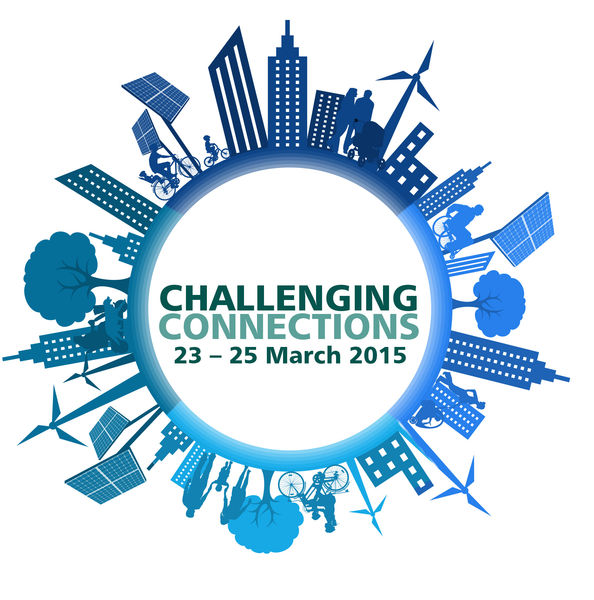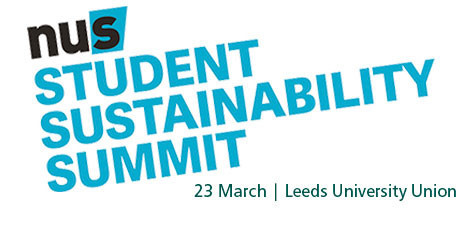Keynotes and sessions
Opening Keynote
Crystal Lameman, Member of the Beaver Lake Cree Nation, Treaty No.6, Sierra Club Canada Prairie Chapter, Climate & Energy Campaigner
Crystal Lameman is a member of the Beaver Lake Cree Nation, Treaty No. 6, Alberta. She is the Climate and Energy Campaigner for Sierra Club Canada and is a fellow of the Indigenous Environmental Network. Crystal uses her formal academia (two university degrees) but most importantly her Indigenous ways of knowing and being to articulate the damaging impacts of industrialization and resource extraction on her homelands. Beaver Lake Cree Nation launched legal action in 2008 aimed at protecting their traditional lands and treaty rights. Lameman cites this action as an example of how First Nations people can assert their rights while offering a solution.
Closing Keynote
Sara Parkin, Founder Director, Forum for the Future
Introduced by Iain Patton, CEO, EAUC
Sara Parkin OBE, Founder Director of Forum for the Future, board member of the Higher Education Academy, patron of Population Matters and author of The Positive Deviant: Sustainability Leadership in a Perverse World
Workshop 1: Fossil Free: Divest Uni's £5.2billion
Andrew Taylor, Climate Campaigns and Communications Manager, People and Planet; Crystal Lameman, Member of the Beaver Lake Cree Nation, Treaty No.6, Sierra Club Canada Prairie Chapter, Climate & Energy Campaigner and Colin Baines, Campaigns Manager, The Co-operative Group
If it's wrong to wreck the planet, then it is wrong to profit from that wreckage. The fossil fuel industry is driving us towards a global climate crisis. They hold five times more carbon in their reserves than we can safely afford to burn to stop runaway climate change. UK universities have £5.2 billion invested in fossil fuel companies and have become key targets of the global Fossil Free divestment movement. Glasgow University become the first university in Europe to divest, not just removing £18 million the industry but challenging their social licence.
Over 25,000 students have joined the campaign at sixty universities and colleges, and become part of the fastest growing divestment movement in history. People & Planet and a key organiser from Glasgow University lead a session where you can find out how to get involved in the battle of our generation.
Workshop 2: Behaviour change: Getting Jeremy Clarkson to drive less
Dr Neil Jennings, Student Switch Off Programme Manager, NUS and Jo Kemp, Green Impact Programme Manager, NUS
Encouraging people to change their habits is tough. But it’s also really important as over 40% of the UK’s carbon emissions come from direct action taken by individuals – from the energy we use in our homes, to the way we travel and the food we eat. Despite increasing levels of concern with environmental issues, people’s values often don’t translate into meaningful action – the value-action gap. Research suggests that we should look at the value-action gap the other way around – to focus on changing behaviours as a way to soften people’s attitudes towards the environment. So how do we go about encouraging Jeremy Clarkson to drive less, rugby players to eat less meat and gamers to use less energy? Join Dr Neil Jennings from NUS as he outlines different approaches to encouraging behaviour change and have a go at planning how you can put them into action on your campus..
Workshop 3: Nature loss: Turning a losing planet into a living planet
Aisla Jones, Seafood Sustainability Officer, WWF- UK; Hendrikus Van Hensbergen, Forest Policy Manager, WWF- UK; Emma Keller, Agricultural Commodities Manager, WWF- UK and Emma Keller, Agricultural Commodities Manager, WWF- UK
WWF-UK Our global wildlife populations have declined by more than half within just 40 years and many more species will become endangered or extinct in our lifetime. Much of this is a direct result of human impacts such as deforestation, pollution and human induced greenhouse gas emissions that drive climate change. With the population set to grow to 9.6 billion by 2050, we are putting increasing pressure on our valuable natural resources. WWF-UK representatives will explore the state of the planet today and the ways in which they are working with governments, civil society and businesses to drive positive change. As the generation who will inherit these global challenges, together we want to explore future solutions for helping people and planet thrive.
orkshop 4: Circular Economy: The future of business
Peter Hopkinson, Professor of Innovation and Environmental Strategy, University of Bradford’s School of Management
In 2006 Ellen MacArthur gave up being a professional yachtswoman to create the Ellen MacArthur Foundation so she could promote and progress the circular economy. What is the circular economy? Well, traditionally we have a linear economy. We extract something, use it once, and then dispose of it. The circular economy makes things that can be disassembled and remanufactured, where the resources don’t leave the system, but are repeatedly cycled indefinitely, fed by renewable energy. In this session, Peter Hopkinson, Director of University of Bradford’s re:centre, and academic director of the partnership programme with the Ellen Macarthur Foundation, will help us to explore what circularity is, giving us a chance to get our hands on some new and exciting products, and together we will explore what next for business.
Workshop 5: Want to win someone over to sustainability? Try food!
Pam Warhurst CBE, Co-Founder, Incredible Edible; Ágnes Knoll, Programme Manager – Student Eats, NUS and Caroline Scott, Leeds University Union
For many it is a personal issue, for others a deeply social thing. In this session we are talking food, and how it can be a great way to engage the disengaged on sustainability. Food is a great way to explore ethical issues, like Fairtrade and animal welfare, sustainability issues, such as use of pesticides and sustainable fishing, local issues, such as food miles and social enterprise and global issues, like climate change and international trade agreements like TTIP. In this session, we will hear from the amazing Pam Warhurst of Incredible Edible, as well as a variety of passionate students who are out to make the world a better place by reconnecting students with the food that they eat, through both the formal and the informal curriculum.
Workshop 6: COP21 and international student collaboration
Charlotte Bonner, Communities Programme Manager, Department for Sustainability, NUS; Antoine Maudinet, Vice President, CliMates; Anna-Marie Vickerstaff, Leeds Green Exchange, Leeds University Union, Margaux Jobin, Communication Director, CliMates, Flick Monk, International Delegation Coordinator, UK Youth Climate Coalition and Marianna Musset, International Delegate for the UK Youth Climate Coalition and Co-Director of The Bristol Skipchen: A Real Junk Food Project
This December Paris will host the international conference on climate change, COP21. Its aim is to reach an international and legally binding agreement to limit greenhouse gases emissions and keep global warming under 2°C by 2100. As such, COP21 may be the most important diplomatic event of the century. But who's going to live through this century? We are. As both present and future generations, climate change is the challenge of our lifetime. So what can we - students and youth in general - do about it? Attend this session with CliMates, UKYCC and NUS to learn more.
Workshop 7: Is your institution’s sustainability strategy missing the point?
Quinn Runkle, Senior Project Officer – Communities and Curriculum, Department for Sustainability, NUS and Maeve Cohen, National Coordinator, Post-Crash Economics
Over the last four years the NUS and Higher Education Academy survey has consistently shown that 60% of university students want to learn about sustainability through their studies regardless of what they are studying. However, most colleges and universities are still putting their sustainability efforts into reducing their negative environmental impacts through their estates, rather than increasing their positive impacts by embedding sustainability in courses. With the increase in tuition fees, universities are seemingly producing more and more conformist, employable graduates that will go into business and politics as normal and become part of the problem. Society urgently needs graduates who can critically-think and challenge why our systems are not working for society and the environment, and who can change things for the better. In this session, we will look at how students can influence the curriculum, with the award-winning Manchester Post-Crash Economics Society presenting on their campaign to get pluralism in economics at the University of Manchester.
Workshop 8: Population: A Tale of Sex and Money
Sara Parkin, Founder Director, Forum for the Future
The last report from the Intergovernmental Panel on Climate Change (IPCC) found that greenhouse gas emissions due to population growth cancelled out all the gains from energy efficiency. The IPCC had lots to say on energy policy, but not a word on population. Yet at the current rate, the UN anticipates there could be 16 billion people in 2100, more than double the number alive today.
The impossibility of this at all levels appears very obvious – the hopes of young people, the lives of women, social justice and the resilience of counties, the impact on the planet’s capacity to provide resources and absorb the pollution. So, why is population a no-go policy area? Why is public debate so hard? Is it really mission impossible? Come and hear from NGO Population Matters about the issues, explore the solutions – and find out what you can do.












